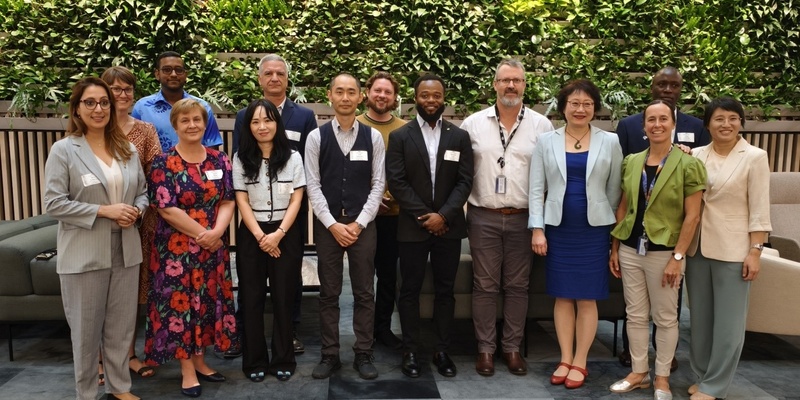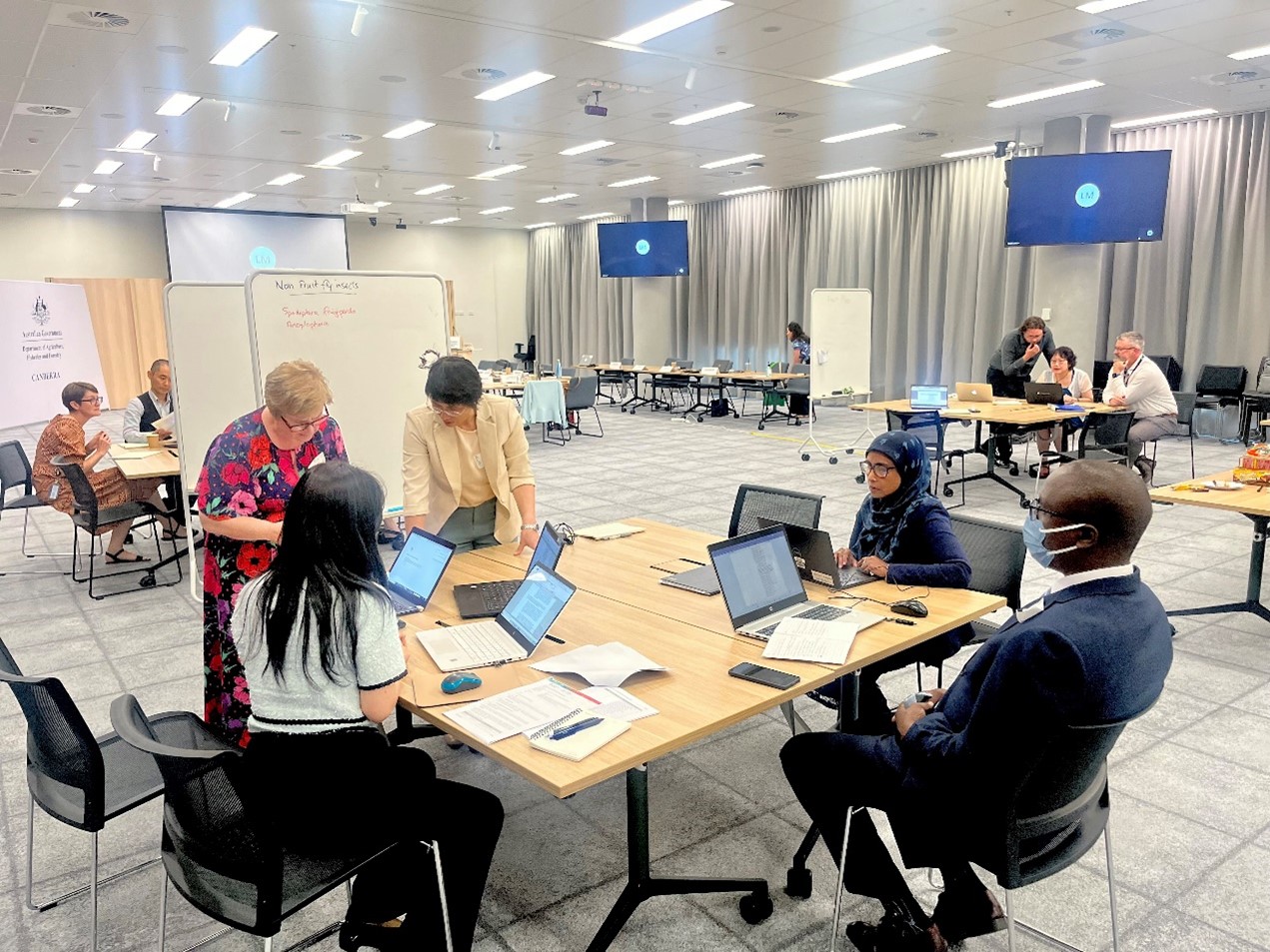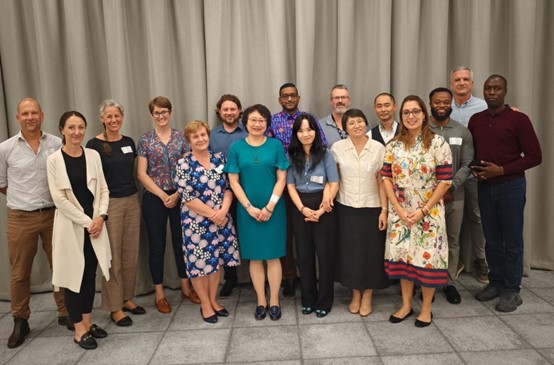Technical Panel on Commodity Standards Advances International Standards for Citrus, Banana and Taro Trade
Posted on Thu, 19 Dec 2024, 13:59

©DAFF - Technical Panel on Commodity Standards at their annual meeting in Canberra, Australia
Canberra, 9 December 2024. The Technical Panel on Commodity Standards (TPCS) recently concluded its annual meeting in Canberra, Australia, achieving significant progress in developing international standards for the safe trade of citrus fruits, fresh banana fruit and fresh taro for consumption. These commodities are critical to global trade and food security, and these draft standards aim to support safe and efficient international trade by mitigating the risks of pest introduction.
Although the draft standard for the international movement of fresh citrus fruit was on the meeting agenda, its finalization will be made at the next TPCS meeting. This decision was made to allow for additional analysis and consultation to ensure the highest level of precision and stakeholder engagement.
Lihong ZHU, Chairperson of the TPCS, “The drafting of standards for banana and taro demonstrates the TPCS’s dedication to addressing global priorities. These standards provide a strong framework for countries to implement effective pest management strategies while facilitating safe trade,” Zhu said.
The TPCS steward, Joanne WILSON recalled that “the development of commodity standards is amongst the key programmes of the IPPC strategic framework 2020-2030 and that the adoption of commodity-specific standards is expected to facilitate and accelerate trade negotiations and simplify safe trade in plant products by 2030”.
The principles around the IPPC commodity standards were stressed by Adriana Moreira, IPPC Secretariat and Deputy Lead to the Standard Setting Unit, “the IPPC commodity standards will not alter the sovereign rights and fundamental obligations under the IPPC and World Trade Organization/Sanitary and Phytosanitary (WTO-SPS) Agreement, and the list of pests and phytosanitary measures in each specific commodity standard is not exhaustive. Also, the regulation of pests will remain firmly based on pest risk analysis and subject to technical justification” she added. The TPCS also had the opportunity to have a presentation on “systems approaches” by Rieks van Klinken and Jane Muller.

© FAO/ Emmanuel Plarhar KRAH - Technical Panel on Commodity Standards at their annual meeting in Canberra, Australia
Draft Standard for Fresh Banana (Musa paradisiaca) The draft standard for fresh banana provides detailed guidance for mitigating pest risks associated with this vital global crop. Covering all cultivars and varieties of fresh banana fruit intended for international trade, the standard outlines measures to address pests such as fruit flies (Bactrocera spp.), mealybugs (Pseudococcus spp.), and bacterial pathogens like Ralstonia solanacearum (commonly known as Moko disease). The proposed phytosanitary measures include pest-free areas, systems approaches, and rigorous inspection protocols to ensure that bananas can be traded safely without compromising the biosecurity of importing countries.
André Felipe C. P. da Silva, steward of the draft banana standard, emphasized the broader impact, noting, “Bananas are not only a global staple crop but also a source of income for millions of smallholder farmers. Developing this standard ensures the sustainability of their trade and strengthens food security in importing regions,” he stated.
Draft Standard for Fresh Taro (Colocasia esculenta)
Similarly, the draft standard for the international movement of fresh taro is designed to mitigate risks associated with pests that threaten this culturally and economically significant crop. The draft standard applies to whole taro corms intended for trade and consumption, excluding processed forms such as dried, frozen, or canned taro. It identifies major pests, including weevils (Papuana spp.), scales (Aspidiella hartii), and nematodes (Radopholus similis), which could severely impact agriculture in importing nations. The draft standard recommends thorough cleaning to remove soil residues, export inspections, and targeted pest-specific treatments to minimize risks.
Sophie Peterson, steward of the taro standard, highlighted its cultural importance, stating, “Taro is more than a crop, it’s a keystone of culture and tradition for millions of people globally. This standard ensures that its trade supports both economic development and biosecurity,” she stated.
Future Directions for the TPCS
Looking ahead, TPCS will continue refining these draft standards and advancing additional priority commodities in its 2025-2026 work program. The finalized drafts for banana and taro will proceed to the next stages of the IPPC standard-setting process, including consultations with stakeholders to ensure comprehensive and practical implementation. The draft standard for citrus fruits is now expected for consultation period in 2026.
It is to note that the first specific commodity standard annex to ISPM 46, fresh mango fruits, has been submitted by the IPPC standards committee for adoption by the CPM-19 (2025). Also, in 2025 there will be another cycle of call for topics: standards and implementation.

©DAFF /Lauren Madden - Technical Panel on Commodity Standards at their annual meeting in Canberra, Australia

